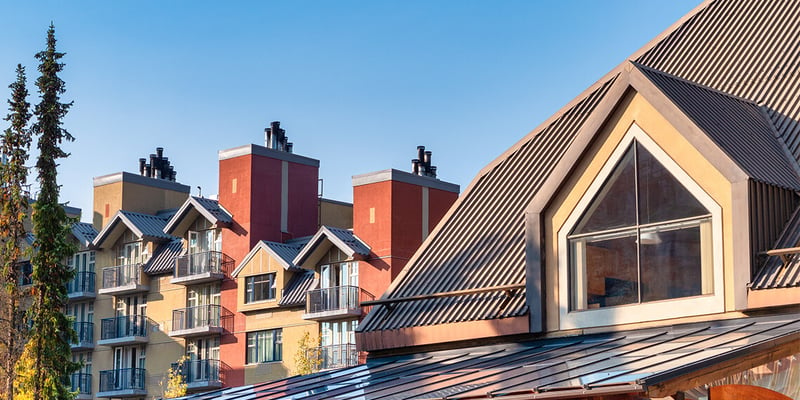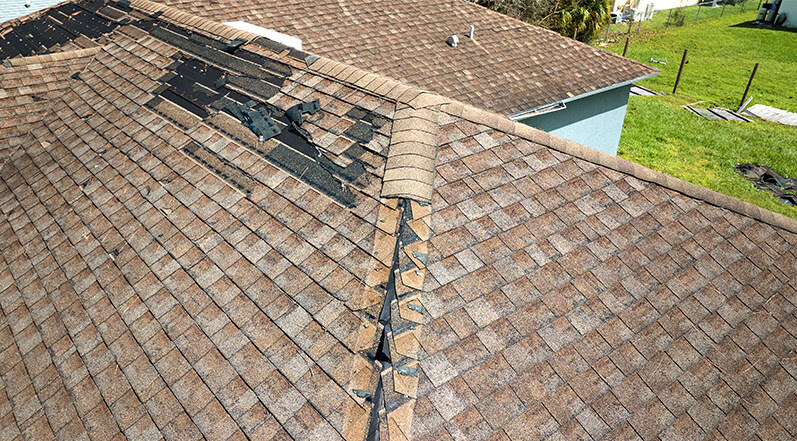- Home »
- Learningcenter »
- Common roofing issues atlanta
FAQ: What Are The Most Common Roofing Issues in Atlanta?

It's interesting to note that Atlanta's unique climate can wear down your roof over time. With sweltering summers, high humidity, and regular storms, you need to keep your roof in top shape.
It's important to know common roofing issues in Atlanta to avoid expensive repairs and make your roof last longer. Heat can cause your shingles to buckle, which will lead to structural damage during storms.
You have quite a bit of thinking about, but as the saying goes: "an inch of prevention is worth a mile of cure." This applies more to roofing than almost anything else! I think knowing what to look for will save you from nasty surprises later.
Let's jump in!
#1: Heat-Related Damage
Let's talk about Atlanta's common roofing problem: heat-related damage. You'll notice that high temperatures make shingles buckle, crack, or warp, which weakens their effectiveness quite a bit. UV radiation also wears down roofing parts, causing fading, discoloration, and less flexibility. So, what does this mean for your roof?
It's helpful to understand that when UV rays strip away needed oils from parts like wood and asphalt shingles, you get weak, cracking, and buckling pieces. UV light also messes with seals along seams, making your roof open to moisture and leaks. Think also about a home in Atlanta where UV rays damaged roofing membranes on flat commercial roofs, and these blisters burst, which leads to leaks. This isn't a "what if" - it's a common issue many homeowners deal with.
Part of this will need thinking about how heat makes your roof's temperature soar beyond 160 degrees. You'll find this extreme heat puts serious pressure on your roof - and traps moisture underneath - weakening it over time.

You might be curious about flat roofs. Heat causes these to sag, bow, or organize water, turning into big problems if you don't address them quickly. Picture this: a homeowner in Midtown Atlanta found their wooden roof parts expanded and torn sealants popped shingles, causing serious leaks and damage.
So, what steps will you take? An easy way to do this is to try out these practical tips: Use reflective roof coatings to cut down on heat buildup. You should also think about good insulation and ventilation to fight heat damage. Keep an eye out for curling or cracked shingles, discolored roofing, and gaps in seams. Reflective coatings and right ventilation help avoid many heat-related roofing issues, but regular inspections are a must!
I recommend taking action now to guard your roof. It's easier and cheaper to avoid damage than to fix it. Don't wait for the heat to wreck your roof - you should act now to shield your home. Act fast!
Have you seen any of these problems on your roof? Contact us for a free roof inspection!
#2: Damage From Storms
You know, storm damage is a big roofing issue you face in Atlanta. Regular storms can create many kinds of damage and affect your roof's strength quite a bit. Think about it: strong winds break or dislodge shingles and leave your roof vulnerable to leaks. When you have missing or loose shingles, your risk of further damage actually increases if you don't fix it quickly.
It's important to know you could also face structural damage from strong winds. Think about fallen branches and trees collapsing sections of your roof or causing it to sag. Since this type of damage can threaten your home's entire structure, it's a good idea to address it quickly. Winds can dent your gutters and mess up other roof parts, which makes your problems worse during a storm - it's terrible!
Sometimes, you might also face hailstorms, which add another layer of trouble in Atlanta, usually causing important issues. Can you picture hail puncturing your shingles? These holes let water seep into your home. Since these leaks cause major interior damage and mold growth, they pose health risks and structural concerns.

After a storm, you need to check your roof right away. You might be asking, what should you look for? Look for missing shingles, dents in your gutters, and any sagging places. Catching these early lets you fix small problems before they become expensive repairs or replacements.
A good idea is to ask, what can you do to protect your roof? Start by trimming overhanging branches and trees. High winds break them off and cause damage. Also, make sure all shingles or tiles are tightly secured and avoid wind damage. Secure loose parts on your roof before a storm and reduce the chance of shingles lifting or cracking.
Once a storm passes, you should create a complete inspection to spot any damage. Did you find a few missing shingles or small dents in your gutters? Fix these issues immediately. Acting quickly prevents water from entering your home and causing more severe problems.
#3: Roof Leaks
It's good to know that roof leaks hit Atlanta usually because of the heavy rains and high humidity. Damaged or missing shingles usually cause these leaks and let water sneak into your home. Once water gets inside, you deal with water stains, mold growth, and sometimes structural damage.
An easy way to spot those water stains first when a roof leak happens is to notice dark places on your ceiling or damp patches on your walls. These signs mean moisture is there and could spell bigger problems soon. Mold loves damp areas and spreads fast, risking your health and weakening your home's structure.

So, what should you watch for to catch leaks early? It's helpful to check your ceilings and walls frequently for any water signs, also after heavy rain. Pay attention to areas around your chimneys, skylights, and vents because water usually enters there.
Unchecked leaks mean many problems - like eroding your home's structure. Since Atlanta's high humidity speeds this up by inviting mold and rot! As time goes on, wood and other parts weaken and lead to expensive repairs or even endanger your home's safety.
Book a complete inspection with your trusted roofing expert at least once a year. Being proactive can save you from big repair costs and headaches later. Also, fix minor damages fast - even one missing shingle could cause major water damage if ignored.
#4: Gutter Issues
It's helpful to pay close attention to your gutters because clogged or damaged gutters usually lead to big roofing problems in Atlanta. When things like leaves, dirt, and debris pile up in your gutters, they cause clogs that make water overflow. That overflow can seep into your roof and ends up causing water damage, rot, and other issues. Heavy rains and storms common in Atlanta can make these problems worse, affecting how your gutters work and raising the risk of damage.
So, you should think about clogs. Poorly installed or supported gutters can sag. Sagging gutters fail to direct water correctly, which leads to similar water damage issues. Clogged or damaged gutters also cause water to pool on your roof. This pooling speeds up roof rot, creates leaks, and can even harm your home's foundation, too.

An easy way to keep your gutters in good shape and avoid these issues is to clean your gutters regularly. Make sure to check them often to catch problems before they get worse. Boring, but true!
For extra protection, you should think about installing gutter guards. These guards block things like leaves and debris while letting water flow freely, cutting down on how usually you need to clean them. Since gutter maintenance can be risky, also if your home has multiple stories, you might also want to hire pros to do the maintenance if you're not comfortable doing the work yourself.
Now, what's the best schedule for this maintenance work?
#5: Flashing Problems
It's important to note that flashing issues give you one of the most common roofing headaches in Atlanta. Flashing seals joints and keeps water from getting in. An important job it does is to direct rain and snow away from your roof, even during storms. Since Atlanta's constant heat and regular storms wear flashing down, that leads to leaks and water damage.
Remember to check for flashing problems around chimneys, skylights, and roof valleys. You should look for cracks, bending, or total failure in the material. Part of this will need recognizing that any of these signs mean damaged flashing. An issue here is that it lets moisture sneak in and causes bigger problems, also during bad weather. Is your flashing cracked or bent? This kind of harm weakens your roof's ability to keep water out.
Be aware of bad flashing repairs too. Poor fixes leave seams, nails, and parts of the roof open to the weather. This situation invites severe leaks and more trouble, also in storm-prone areas.

What actions should you take if you spot flashing issues? It's helpful to fix or replace damaged flashing right away to keep your roof strong. Ignoring this job can lead to expensive repairs later. To ensure the best results, I recommend hiring professional roofers for the best results. They replace step flashing during a new roof installation, which creates only one layer of flashing. This technique keeps water from getting in and makes your roof last longer.
Is it a good idea to act fast on flashing problems? Definitely, acting quickly stops severe damage to your home. Timely checks and repairs save you from high water damage costs. This way, they keep your roof in great shape.
#6: Algae And Moss Growth
It's no surprise that algae and moss growth are common roofing problems in Atlanta because of the humid climate. You'll usually see algae as streaks in brown, gray, blue, or green, and they hurt the reflectivity of shiny roofs and make your energy costs go up. Those ugly streaks mean moisture gets trapped, wearing out shingles and leading to leaks.
You might notice moss showing up as tufts or mounds on the roof, turning green during wet times and brownish-green when it's dry. In addition to looking bad, moss harms shingles, causing them to lift or curl, which can cause water to get in and damage wood - creating major leak problems.

So, what should you do about this? Fight algae and moss by trying some easy steps. Put zinc or copper strips near your roof's top edge. This helps stop these organisms from growing. When rain runs over these metal strips, it releases ions, poisoning algae and moss - making it hard for them to grow.
It's also good to think about algae-resistant shingles, too. These shingles have copper bits to stop algae from growing. If you combine this with regular roof cleaning it lowers the chance of algae and moss to grow. Easy steps!
As for upkeep, you usually look at your roof to catch these issues early. You want to check for areas that stay damp or shaded. These are perfect places for algae and moss. Clean gutters and trim overhanging branches to cut down on extra moisture and shade - this helps avoid growth.
#7: Roof Ventilation Issues
When it comes to roof ventilation issues in Atlanta, you can't ignore the need for the right airflow. You face problems like heat buildup, higher energy bills, and faster wear of roofing parts without enough ventilation. Think about the common ventilation issues in Atlanta homes and why you should care.
You should think about moisture buildup - it's a big deal when ventilation is poor. You might end up with mold, mildew, and serious damage to roofing parts. You need to keep airflow up to steer clear of these problems. How do you check for good ventilation in your attic? Look for signs like peeling paint, damp areas, and rusty roof nails, as these show too much moisture since Atlanta's humid and warm weather makes these problems worse.
Have you seen how uncomfortable your home gets? Hot air trapped in the attic heats up your living space and makes it unbearably warm. This, as you can think about, spikes your energy costs. Make sure your attic ventilation system lets heat escape efficiently so your home stays comfy all year!

Have you seen the paint in your attic start to peel or blister? It happens because of trapped moisture. Bad ventilation makes everything damp - affecting your roof and interior finishes. This means higher repair costs and a shorter lifespan for your home's parts.
You should think about your roofing parts taking a hit. Too much moisture rusts roof nails and makes shingles decay faster. Most times, you won't see the damage until it's serious. You should always check your roofing parts and keep up airflow to avoid expensive repairs.
Ice dams during cold months? Poor ventilation leads to that, too. These ice dams cause severe damage to walls, ceilings, and insulation (they're expensive to fix).
So, what can you do to help with attic ventilation? You should add ridge vents, soffit vents, or attic fans to help with airflow. You also should periodically check your latest ventilation systems and change them as needed for peak performance. Good ventilation extends your roof's life - it also makes your home more energy-efficient and comfortable.
Protect The Roof Over Your Head
It's important to recognize you've probably faced all kinds of roofing problems if you own a home in Atlanta. You inevitably deal with extreme heat and surprise storms that make roof care a constant job. You might have thought about the many issues like heat damage, storm results, leaks, gutter problems, flashing issues, algae growth, and poor ventilation. Have you ever faced any of these issues personally? It's not fun, but to find problems early makes a huge difference.
Realize the importance of being proactive and informed. Ignoring even small issues means you'll see big headaches and steep bills later. Do you see how regular inspections and timely maintenance could save you time and money? Those things can be crazy! Catch problems early before they grow into much bigger and more expensive concerns.

Remember, keeping your roof in top shape takes both knowledge and the right professional help. Let us help! At Colony Roofers, we handle both commercial and home roofing with offices in Georgia, Florida, and Texas. Protect what you own and guarantee your safety by trusting us to do your roof repairs. Reach out to us today for a free inspection, and we'll give your roof the care it deserves. When you're unsure, consult with a trusted roofing professional like Colony Roofers. We offer expert advice and great services. Contact us today!
 Call (678) 365-3138
Call (678) 365-3138



